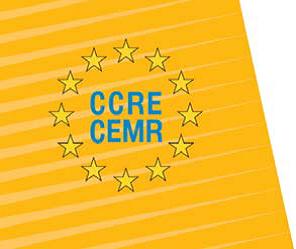EU Organisations
Council of European Municipalities and Regions (CCRE/CEMR)

Introduction
CEMR works to promote local and regional self-government and democracy. To achieve this goal, it endeavours to shape the future of Europe by enhancing the local and regional contribution, to influence European law and policy and to exchange experience at local and regional level.
Structure, key stakeholders and partners
The Council of European Municipalities was founded in 1951 by a group of European mayors; later, it opened its ranks to the regions and became the Council of European Municipalities and Regions. Today, it is the largest organisation of local and regional government in Europe; its members are over 50 national associations of towns, municipalities and regions from 39 countries. Together these associations represent some 100,000 local and regional authorities.
CEMR works closely with the DG Education and Culture of the European Commission to support the development of twinning projects linking towns from all over Europe. CEMR is the European section of the new worldwide organisation United Cities and Local Governments (UCLG). CEMR has two governing bodies – the Policy Committee and the Executive Bureau.
Priorities and activities
CEMR works in many fields of activity such as employment, energy, environment, equal opportunities, governance & future of the EU, information society, international local government, local and regional democracy, local and regional government as an employer, North South cooperation, public services / procurement, regional policy, social Affairs, sustainable development, town twinning, transport, urban and rural policies.
Its committees and working groups seek to influence draft EU legislation to make sure the interests and concerns of local and regional authorities are taken into account from the earliest stages of the EU legislative process. They contribute to CEMR's calendar of activities by organising seminars and conferences on a wide range of issues to promote the exchange and dissemination of experience at the local and regional level.
CEMR work programme of 2011 is based on thematic priorities such as the future of the financial framework of the EU, the future of the cohesion policy and the rural development, facilitation of the exchange of good practices and case studies among national associations and their members on key issues related to local finances in the context of the financial and economic crisis and the recovery.
Further information
- Website: https://www.ccre.org
- Events: https://www.ccre.org/fr/page/31
- Publications: https://www.ccre.org/fr/publications
- E-mail: info@ccre-cemr.org
- Address: Square De Meeûs 1, B-1000 Brussels



